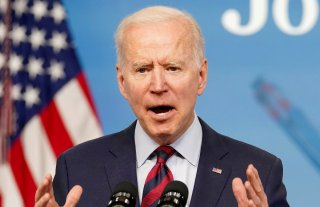$1,400 Stimulus Check Update: Why Millions Still Have No Money
The latest tally by the Internal Revenue Service has revealed that more than 85 percent of the $450 billion total earmarked for coronavirus stimulus funds have been disbursed to cash-hungry U.S. taxpayers.
The latest tally by the Internal Revenue Service has revealed that more than 85 percent of the $450 billion total earmarked for coronavirus stimulus funds have been disbursed to cash-hungry U.S. taxpayers.
Therefore, chances are pretty high that most Americans who are eligible for the stimulus checks already have received them.
“The IRS continues to send the third round of stimulus payments in record time,” IRS Commissioner Chuck Rettig said in a statement.
The agency, however, has admitted that there are indeed certain groups of people who are still sitting on the sidelines in terms of being able to enjoy the newest cash windfall under President Joe Biden’s $1.9 trillion American Rescue Plan.
With that in mind, let’s take a look at who could be potentially affected.
Federal Benefits Recipients
After weeks of delays, millions of stimulus payments are currently heading out to Social Security, Supplemental Security Income, Railroad Retirement Board, and Veterans Affairs beneficiaries. For the current sixth batch of payments specifically, there were about six hundred thousand checks disbursed to Social Security and Supplemental Security Income beneficiaries, including those individuals with foreign addresses. The advice is to wait patiently if the check hasn’t arrived yet.
Haven’t Filed Tax Returns
The latest batch of payments included individuals whom the IRS did not previously have on record. After processing their 2020 tax returns, seven hundred thousand checks worth more than $1.3 billion were disbursed to those who fit into this category. Keep in mind that for this particular tax season, which has been extended to May 17, a Recovery Rebate Credit has been added to all returns, so that people can eventually get their hands on the overdue payments.
No Permanent Address or Bank Account
For individuals who don’t have a permanent address or an open bank account, the best option available is to file a tax return, which is considered the fastest way for the IRS to get the necessary information it needs to disburse the payments. “People do not need a permanent address or a bank account. They don’t need to have a job. For eligible individuals, the IRS will still issue the payment even if they haven’t filed a tax return in years,” the agency states.
Eligible to Receive “Plus-Up” Payments
For those who are still waiting for “plus-up” or supplemental payments, there is indeed good news. The latest batch included another seven hundred thousand “plus-up” checks, which are “for people who earlier in March received payments based on their 2019 tax returns but are eligible for a new or larger payment based on their recently processed 2020 tax returns,” the IRS said. The agency has estimated that it will ultimately send out more than $1.2 billion of such payments.
Ethen Kim Lieser is a Minneapolis-based Science and Tech Editor who has held posts at Google, The Korea Herald, Lincoln Journal Star, AsianWeek, and Arirang TV. Follow or contact him on LinkedIn.

